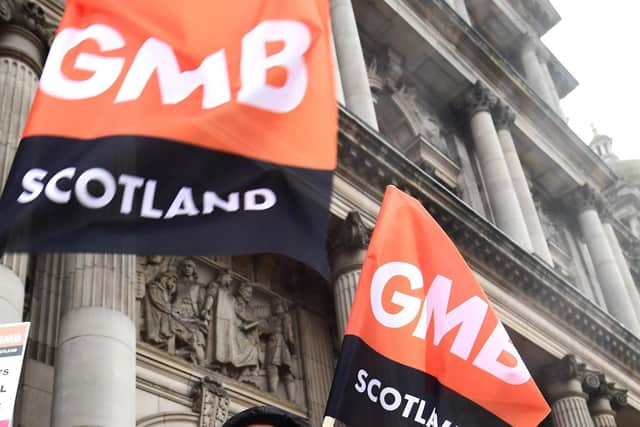Scotland's council tax freeze could lead to delays and mounting bills over equal pay claims, union warns
Scotland’s finance secretary has been warned that the contentious decision to freeze council tax will result in local authorities “dragging their heels” over long-running equal pay claims.
The GMB Scotland union said that the deepening financial crisis facing local government is threatening to add millions of pounds to the overall cost of the claims, with workers denied the “pay justice” they are owed as the legal action wears on.
Advertisement
Hide AdAdvertisement
Hide AdIt represents thousands of women employed by councils across the country, who are claiming years of back pay after not being offered bonuses that were routinely given to male colleagues on the same grade. With equal pay claims underway or under discussion at more than half of Scotland’s local authorities, the cost to each in terms of compensation and added interest is estimated by the union to reach tens of millions of pounds.
While Scotland’s largest council in Glasgow reached a £770 million agreement in 2022 to settle outstanding claims, GMB Scotland said other councils would see their compensation bills rise unless the issue is tackled with “urgency, transparency, and fairness.”
Cara Stevenson, organiser of the union’s women’s campaign unit, has written to Shona Robison, calling on her and other ministers to work with councils to identify and release the funds needed to settle the claims.
She said: “Pay discrimination is a very real problem being endured by the lowest paid workers in local government. It is a problem the Scottish Government can resolve, but which it has, so far, enabled. It is vital local authorities are given the funding required to meet their equal pay liabilities. If not, the debt owed will only increase.”
The union, which has ongoing legal claims against councils including Dundee, Fife and Argyll and Bute - with related cases raised in more than a dozen more local authorities - said the issue of equal pay settlements was inextricably linked to the financial woes facing local government.


“Councils might hope that sticking their head in the sand will make these claims go away but it will not,” Ms Stevenson said. “They must address the reality of these claims and the rising costs, and deliver the pay justice these women have deserved for many, many years.”
COSLA said any equal pay claim was the responsibility of councils as employer. The body held a full meeting of local authority leaders on Friday, during which they underscored their view that councils should still have the discretion to set their own council tax level. It has been reported that council officials in Edinburgh have investigated the impact of raising council tax despite the freeze, and concluded that the city council would be better off financially as no penalties have been proposed by ministers.
A Scottish Government spokeswoman said: “Councils are responsible for meeting their legal obligations to their employees, including on equal pay. In the face of a profoundly challenging financial situation, the Scottish Government is making available record funding of more than £14 billion to councils in 2024/25 - a real-terms increase of 4.3 per cent compared with the previous year if the council tax freeze is accepted. The £144m for the council tax freeze would be equivalent to an above-inflation five per cent rise in council tax nationally.”
Comments
Want to join the conversation? Please or to comment on this article.